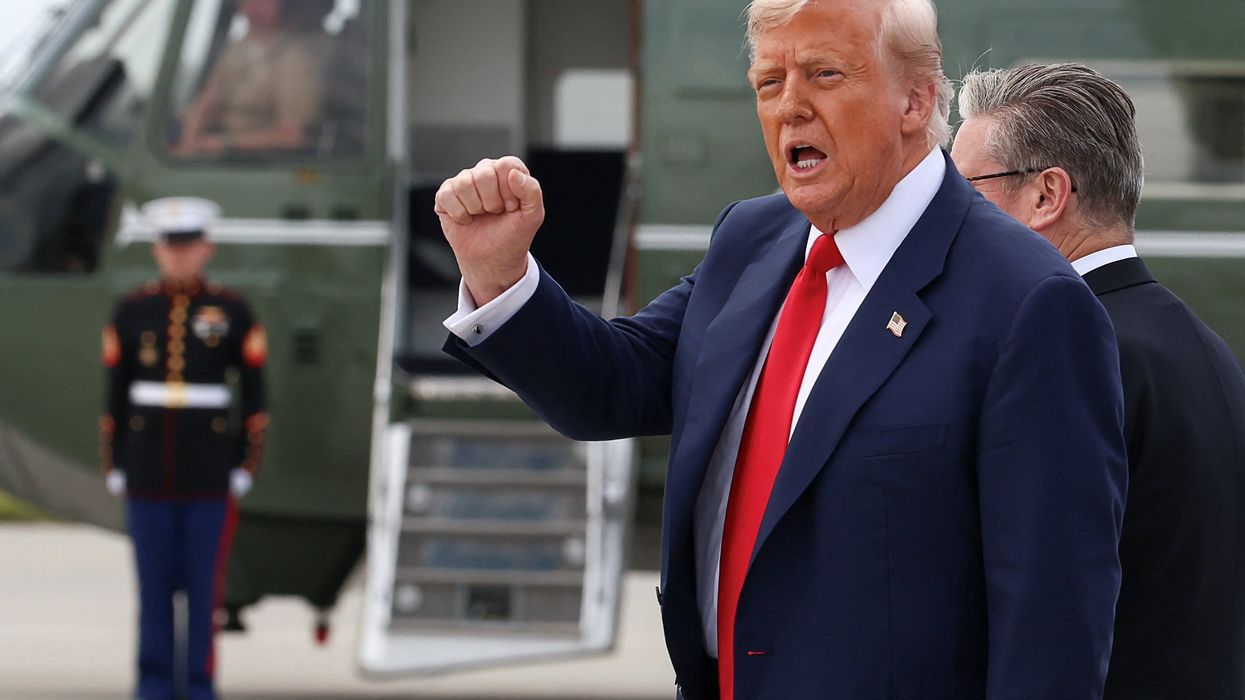Having used federal law enforcement in Los Angeles and Washington, D.C. despite the objections of local officials, President Donald Trump is now doing the same thing in Chicago and Portland, Oregon. And he is threatening to invoke the Insurrection Act of 1807 in Democratic cities — something a U.S. president hasn't done since George H.W. Bush during the Los Angeles riots of 1992.
Stephen I. Vladeck, a law professor at Georgetown University in Washington, D.C., examines Trump's use of federal law enforcement in U.S. cities in an op-ed published by the New York Times on October 7. And Vladeck warns that Trump is dangerously overreaching, although he explains why Trump's actions in L.A., Washington, Chicago and Portland don't constitute full-fledged martial law.
"Contrary to some Trump critics," Vladeck explains, "the president's actions in Washington and Los Angeles as well as the developing situations in Portland and Chicago are not tantamount to imposing martial law. That's only when the military supplants civilian government, not when it supplements it. Indeed, if there were consensus among officials and citizens that civilian authorities could not adequately enforce the laws, there would likewise be consensus that Congress has given the president the power to use federal troops — whether regular or federalized National Guard personnel."
The Georgetown legal scholar continues, "The problem instead is that many Americans don't believe the president's claims. We look at pictures and videos out of Portland and we don't see 'war-ravaged' anything. We look at news reports out of Chicago and see the principal violence coming from federal officers — not being directed toward them. To put the matter directly, there's a factual dispute about whether resorting to the military is justified."
The question that legal experts are grappling with now, according to Vladeck, is: "Can presidents unleash the armed forces on their own people based on facts that they contrive?"
Vladeck lays out some ways in which the Trump Administration "has pushed the envelope" in U.S. cities.
"In the California, Oregon and Illinois cases," Vladeck notes, "the administration is trying to walk a legal tightrope. It is invoking an obscure provision in Title 10, the part of the U.S. Code that deals with the military, to federalize National Guard troops. But that provision authorizes federalization only when 'the president is unable with the regular forces to execute the laws of the United States.' And without a request from local officials, the president can use 'regular forces' only if 'unlawful obstructions, combinations or assemblages, or rebellion against the authority of the United States, make it impracticable to enforce the laws of the United States.'"
Vladeck continues, "On Monday, (October 6), President Trump threatened to invoke the Insurrection Act 'if people were being killed and courts were holding us up, or governors or mayors were holding us up.' But the same reason he hasn't invoked that statute yet should also doom his reliance on the more obscure National Guard authority. Instead, the federal government is trying to use dubious factual claims about what's true on the ground in these cities to justify federalizing National Guard troops both from within those states and from outside of them."
Stephen I. Vladeck's full op-ed for The New York Times is available at this link (subscription required).


